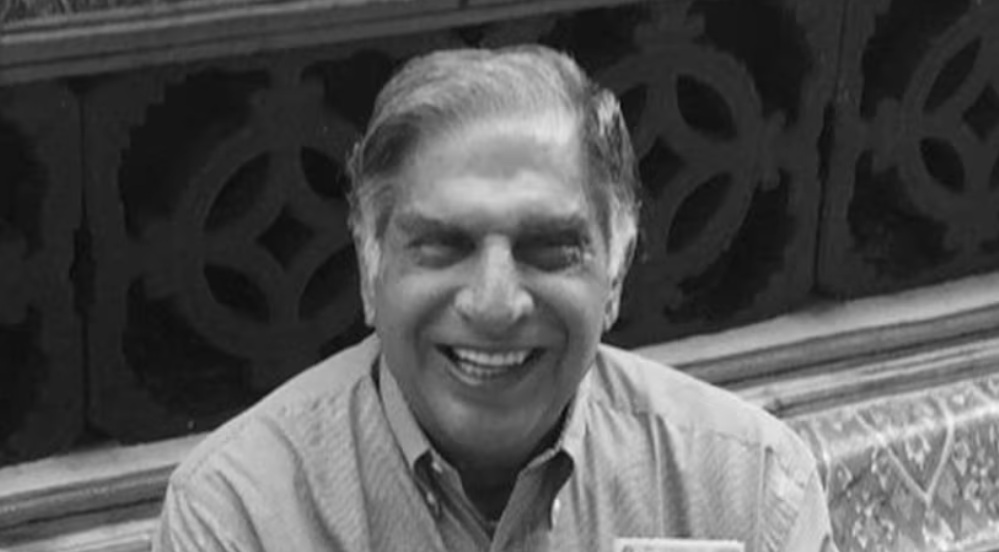Ratan Tata Passes Away at 86: Celebrating His Life and Enduring Legacy
Ratan Naval Tata, a business icon and one of India’s most influential figures, passed away today at Mumbai’s Breach Candy Hospital at the age of 86. His passing marks the end of an era for the Tata Group and for the world of business and philanthropy. Known for his visionary leadership, ethical business practices, and a lifelong dedication to social causes, Ratan Tata leaves behind a legacy that is deeply intertwined with India’s economic growth and global standing.

Let’s take a closer look at his incredible journey, from his early life and challenges to his remarkable achievements and his lasting contributions to business and society.
A Visionary Leader Who Transformed the Tata Group
Ratan Tata’s leadership at the Tata Group is nothing short of legendary. Taking the helm as chairman in 1991, he guided the company through two decades of monumental growth. Under his stewardship, the Tata Group’s revenue grew from $5.7 billion in 1991 to nearly $100 billion by 2012. This dramatic expansion was fueled by a series of bold decisions and strategic acquisitions that placed Tata at the forefront of global markets.
Some of his most notable deals include the acquisition of iconic brands such as Tetley (2000), Corus (2007), and Jaguar Land Rover (2008). These landmark acquisitions showcased Tata’s ability to take calculated risks and enter new industries, cementing the company’s global reputation. But his ambitions were never just about profit Ratan Tata believed in creating a company that balanced financial success with social responsibility.
One of the most memorable milestones in his career was the launch of the Tata Nano in 2008. Tata aimed to revolutionize the auto industry by creating the world’s most affordable car, making transportation accessible to millions of Indian families. Although the Nano didn’t achieve long-term commercial success, the bold innovation embodied Tata’s commitment to serving the broader public good.
Early Life: Overcoming Personal Challenges
Ratan Tata’s life wasn’t without its share of personal struggles. Born on December 28, 1937, he faced family challenges early on. His parents separated when he was just 10 years old, and he was subsequently raised by his grandmother, Navajbai Tata. Despite these hardships, Tata demonstrated resilience and determination, traits that would later define his career.
Tata pursued higher education in the United States, earning a degree in architecture from Cornell University. He later attended Harvard Business School, where he completed an advanced management course in 1975. His international exposure and academic experience laid a strong foundation for the leadership role he would eventually assume at the Tata Group.
Tata’s early career was shaped by hands-on experience at the family business. He joined Tata Sons in 1962, starting at the shop floor level. These formative years gave him invaluable insight into the inner workings of the company. Despite initial setbacks with his early leadership roles at NELCO and Empress Mills, which faced financial difficulties, Tata’s determination never wavered.
Modernizing the Tata Group: A Bold New Direction
When Ratan Tata took over as chairman of Tata Sons in 1991, there were skeptics who doubted his ability to lead such a vast conglomerate. However, it didn’t take long for Tata to prove them wrong. One of his first significant moves was to modernize the company’s operations, which included restructuring the management and introducing better corporate governance.
Tata was always forward-thinking, expanding the group into emerging industries such as telecommunications, steel, and automotive. These new ventures not only diversified the company’s portfolio but also positioned Tata Group as a global player in key sectors. By 2012, the group had firmly established itself as one of the largest and most respected conglomerates in the world, with a presence in over 100 countries.
As a business leader, Ratan Tata was known for his humility and focus on long-term value rather than short-term gains. His leadership style was built on trust, integrity, and a strong sense of social responsibility, which helped foster a loyal and motivated workforce.
Philanthropy: A Heart Dedicated to Giving Back
Beyond business, one of the most significant aspects of Ratan Tata’s legacy is his commitment to philanthropy. A remarkable 65% of his shares in Tata Sons are dedicated to charitable causes through the Tata Trusts. These trusts have been instrumental in funding a wide array of initiatives in education, healthcare, and social development across India.
Tata’s contributions have had a profound impact on improving the quality of life for millions of Indians. His approach to philanthropy was not about simply donating money but about creating meaningful change. He believed in empowering communities, particularly in areas of education and healthcare, ensuring that the less privileged had access to opportunities for a better future.
“Don’t wait for opportunities to come to you, create your own opportunities,” Ratan Tata once famously said a quote that speaks to his lifelong passion for uplifting others.
Awards and Recognition: A Legacy Honored Around the World
Ratan Tata’s contributions to both business and society have not gone unnoticed. Over the years, he has received numerous accolades, both in India and internationally. Among his most prestigious awards are the Padma Bhushan in 2000 and the Padma Vibhushan in 2008, two of India’s highest civilian honors.
In 2010, he was also awarded the Oslo Business for Peace Award, which recognized his contributions to ethical business practices. His achievements extended beyond the Indian subcontinent when he was honored with the Knight Grand Cross of the Order of the British Empire in 2014 by Queen Elizabeth II, further solidifying his status as a global business leader.
Life After Retirement: Still Active and Making a Difference
Even after stepping down as chairman of Tata Sons in 2012, Ratan Tata has remained active in the world of business and philanthropy. In 2016, he briefly returned as interim chairman, demonstrating his unwavering dedication to the company he helped shape.
Tata’s post-retirement life has been marked by a continued passion for investing in start-ups and mentoring young entrepreneurs. Through his personal investments, he has supported many innovative businesses in sectors ranging from technology to healthcare. He is also a well-known backer of social initiatives, especially those aimed at empowering India’s youth.
Despite his towering achievements, Ratan Tata has always maintained a modest lifestyle. He has never been one for the flashy trappings of wealth. Instead, he has lived simply in a modest Mumbai home and preferred to drive a Tata sedan. His personal values of humility and simplicity resonated with people from all walks of life, making him a beloved figure in India and abroad.
A Legacy of Leadership, Integrity, and Compassion
Ratan Tata’s passing marks the end of a remarkable life, but his legacy will continue to inspire generations to come. His visionary leadership, dedication to ethical business practices, and lifelong commitment to philanthropy have left an indelible mark on India and the world.
Tata’s success was never just about building a global business empire it was about using that success to better the world. His approach to leadership was rooted in the belief that businesses have a responsibility to give back to the communities they serve. Through his work at the Tata Group and his extensive philanthropic efforts, Ratan Tata demonstrated that it’s possible to succeed in business while also making a meaningful difference in society.
As we reflect on his life and legacy, one thing is clear: Ratan Tata was not just a businessman. He was a visionary, a philanthropist, and a true role model for leaders everywhere. His impact will be felt for many years to come, and his legacy of leadership, integrity, and compassion will continue to shape the future of India and the world.





